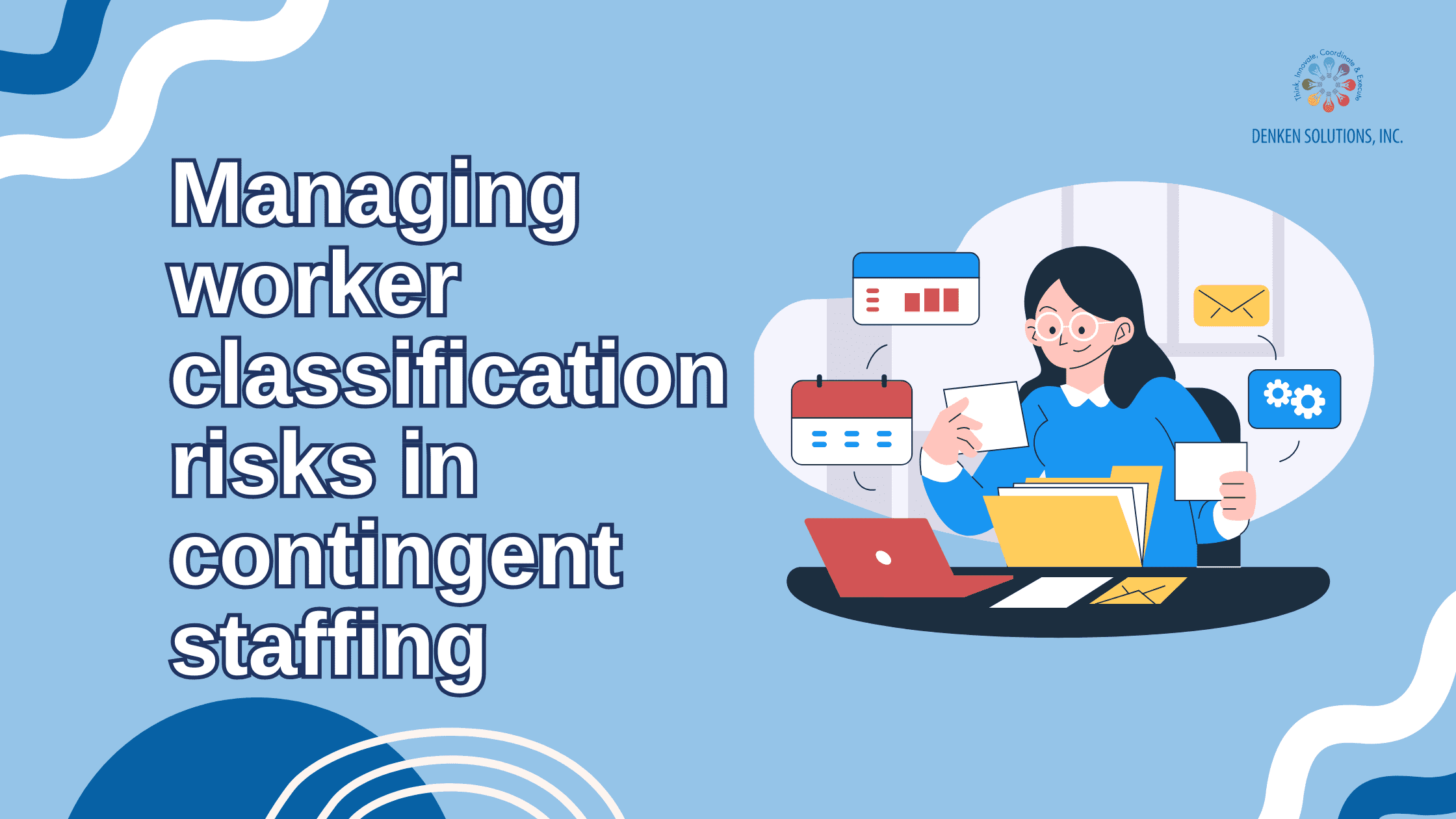A 2023 report released by the American Psychological Association shows that 92% of employees find it important for organizations to value their emotional and psychological well-being by fostering a positive work experience. Although the survey results presented in this report display positive workplace developments in the wake of hybrid and remote work models, there are areas for improvement when it comes to providing employees with the desired breaks from work stress.
One of the major factors that tend to increase workplace stress for employees is seasonal highs. To cope with the increasing seasonal demands and stay competitive in the fast-paced business environment of today, employers or business leaders strategize to make the best possible use of their employees. However, while doing so, they often fail to address their psychological and emotional well-being, which further leads to increased workplace stress, lower productivity, absenteeism, and increased turnover. When the workload goes up, the perception of workplace fairness for employees goes down as they feel increasingly stressed. To deal with seasonal highs with efficiency and, at the same time, ensure that the job satisfaction and performance of employees remain intact, employers should consider opting for seasonal contingent staffing.
This article sheds light on how contingent staffing for seasonal demands can help organizations prevent burnout of their existing permanent employees.
Ways in which contingent staffing for seasonal demands can reduce employee burnout
- Minimizing work pressure for core employees
The sudden surge in workload during seasonal highs usually causes your employees to feel overwhelmed. Besides fulfilling the seasonal demands, your core employees are tasked with accomplishing day-to-day operational and strategic tasks for your business. This rising burden on them can be effectively reduced when you switch to contingent staffing for seasonal demands. This helps you to distribute the workload between your full-time teams and temporary employees.
For instance, in a food and beverage restaurant where demand is high during the festive season, the employer can hire contingent workers and engage them in backend operations such as managing stocks with suppliers and controlling inventory. This will reduce the burden on existing full-time staff, allowing them to focus on critical front-end operations such as taking orders, managing and serving customers, etc.
- Maintaining a steady flow of business operations
Employee burnout proves to be a primary factor behind absenteeism, which drops productivity and disrupts business operations. In the face of high demands, if business leaders do not undertake a tactical approach and create backup plans to deal with absenteeism, they might encounter challenges in maintaining a seamless flow of operations. With contingent staffing for seasonal demands, you can efficiently fill labor gaps to address absenteeism and allow your in-house employees to take their necessary time off and recharge without breaking the flow of your business operations. This is particularly important for industries where the demands for products or services go up with changing seasons, such as retail, food and beverage, agriculture, etc.
Related read: Leveraging Contingent Staffing for Seasonal Demands: A Practical Guide
- Fostering a learning environment
All employees, be they permanent or temporary, seek learning and professional development opportunities from their employer organizations. By hiring contingent workers for seasonal demands, you can bring specialized skills, unique perspectives, and diverse ideas to your teams. With extensive experience in various industries and diverse job roles, contingent workers not only usher in creative thoughts and ideas but also contest existing practices, motivating teams to probe alternative and innovative ways. This helps channel a learning environment, which is crucial to enhancing job satisfaction and the morale of your employees.
Suppose you are running a fashion retail business, and you want to promote your winter apparel in the holiday season. Your existing in-house marketing team is already occupied with day-to-day promotional activities, and thus, you need an extra hand for the purpose. In such a situation, you can hire and engage a contingent marketing strategist to meet this short-term promotion need. This will not only prove to be a cost-efficient staffing solution for your business but can also be a learning opportunity for your existing team when the marketing strategist shares insights from his past successful campaigns from various industries.
- Enabling core employees to prioritize strategic areas
As mentioned earlier, contingent staffing for seasonal demands prevents your existing, full-time staff from getting overwhelmed and stressed due to additional tasks and increasing workload. Besides enabling you to distribute the seasonal workload between temporary and permanent teams, contingent staffing solutions help free up core employees and leadership teams to prioritize strategic, long-term business goals and objectives instead of diverting their focus on short-term operational areas.
For instance, an e-commerce business can switch to seasonal contingent staffing during peak times and engage temporary customer service executives to handle customers and respond to their queries and complaints. This will enable the in-house team to take charge of more essential tasks pertaining to strategic areas of business aimed at elevating customer experience and bolstering market reach.
- Boosting job satisfaction and improving employee turnover rates
Employee burnout during seasonal highs not only leads to absenteeism but also results in an increasing turnover rate. It is quite natural for employees to leave their jobs when they feel increasingly burdened, stressed, demotivated, and dissatisfied. Employers do attempt to address their motivational needs by offering adequate bonuses, rewards, and recognition but sometimes those are not enough to fulfill their psychological and emotional well-being. All they need is a proper work-life balance that can reduce their fatigue, stress, and anxiety in the face of increasing workload.
With contingent staffing for seasonal demands, you can demonstrate your commitment to your employees’ well-being. When the workload gets distributed or reduced, your in-house or permanent employees get the opportunity to take adequate breaks. This boosts job satisfaction and shrinks the turnover rate caused by surging workloads.
Bottom line
Contingent staffing solutions prove to be a proactive way of reducing employee burnout during peak demands. By minimizing the workload of core employees, contingent workers allow businesses to deal with employee absenteeism resulting from increasing stress and burnout. They further help fill labor gaps and maintain a steady flow of business operations during peak times. Contingent workers with niche expertise often bring in specialized skills and competencies and enrich existing teams with fresh and innovative ideas and perspectives, thereby cultivating a learning work environment. The distribution of workload also allows core employees and leadership teams to keep their concentration on strategic business areas intended to fulfill primary goals and objectives. Overall, seasonal contingent staffing helps enhance the job satisfaction of your full-time and permanent employees and reduce employee turnover.
Want to leverage contingent staffing solutions to meet your seasonal demands? Partner with Denken Solutions and get the best staffing services tailored to your business goals and objectives.



